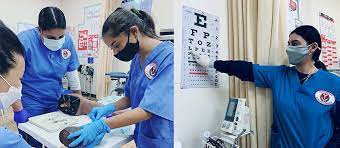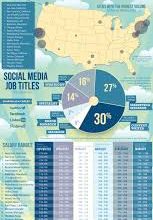Are you feeling lost and unsure about your future career? Do you find yourself thinking of the path to take to have a fulfilling and successful professional life? If so, you’re not alone. Many struggle with finding their career path because it can be daunting and overwhelming. However, there is a solution – the career path test. In this article, we discuss what a career path test is, how it can help you find your best ideal career (adults and students), and the steps you can take to navigate your way toward a fulfilling and successful professional future. So, are you ready? Keep reading!
How To Find Your Career Path Test
Finding your career path test isn’t easy, especially when there are so many options. However, below are some tips to find your career path test.
Many career path tests can help you identify your strengths, interests, and passions. These tests usually involve a series of questions that assess your skills, personality traits, and values. Then, the results can provide valuable insights into potential career paths that align with your unique attributes. However, remember these tests are not definitive answers, but rather, they serve as a starting point for exploring different career options.
After taking the career path test, analyze the results and reflect on your preferences and goals. Then, consider the strengths, weaknesses, and skills you enjoy using the most. Also, think about the activities that energize you and make you happy.
Additionally, examine your values and how they align with your potential careers. It is crucial to seek out informational interviews, shadowing opportunities, and internships to gain hands-on experience in the fields that interest you.
By exploring different options and gaining real-world exposure, you can understand what career path is the right fit for you.
Best Career Path Test For Adults And Students
When choosing a career path, adults and students face much confusion and uncertainty. To make the best choice, undergo a career path test. Here are the best career path test for adults:
#1. Myers-Briggs Type Indicator (MBTI)
Myers-Briggs Type Indicator (MBTI) is the first best career path test for adults. This test assesses your personality traits and preferences and matches them to specific career paths. By understanding your personality type, you can gain insights into your strengths, weaknesses, and the work environment you thrive in.
#2. Strong Interest Inventory (SII)
Another popular career path test for adults is the Strong Interest Inventory (SII). This test measures your interests and compares them to a vast database of career options. It helps you identify areas of personal and professional interest and suggests suitable career paths based on your responses. However, SII is beneficial for adults looking to make a career change or explore new opportunities.
#3. CareerExplorer
CareerExplorer is a comprehensive career assessment tool to help adults and students find their best career path. This test utilizes a series of questions to evaluate your interests, skills, and personality traits. Through self-reflection and analysis, CareerExplorer generates personalized career recommendations based on the user’s unique profile.
In addition, the test provides detailed information about each recommended career. This includes job descriptions, required education and training, salary range, and growth potential. CareerExplorer helps in taking well-informed career decisions with valuable insights and increasing your chances of finding a successful field.
#4. CareerFitter
CareerFitter is a user-friendly career assessment tool that helps adults and students identify their ideal career path. The test relies on questions related to work preferences, personality traits, and interests to evaluate your compatibility with various careers.
Once the assessment is complete, CareerFitter generates a detailed report that highlights your top career matches for the user. Additionally, the report contains information about each recommended career. That’s your required skills, education, salary potential, and growth opportunities.
#5. Keirsey Temperament Sorter
The Keirsey Temperament Sorter is a popular career path test that helps adults and students identify their personality traits and strengths. It allows them to make more informed decisions about their career choices. Based on the work of psychologist David Keirsey, this test categorizes individuals into one of four temperaments: Artisan, Guardian, Idealist, and Rational.
Each temperament has its unique set of strengths, weaknesses, and preferences. They can provide valuable insights into careers that may be fulfilling for you. Understanding your temperament can help you identify your natural inclinations, decision-making styles, and communication preferences. And all of these can guide you to a career that aligns with your inherent strengths and interests.
#6. Big Five
The Big Five is a career path test that measures an individual’s personality traits based on the five broad dimensions of personality. These dimensions include openness, conscientiousness, extraversion, agreeableness, and neuroticism.
Furthermore, this test is useful for adults and students looking for a comprehensive understanding of their personality characteristics and how they may align with different career paths.
For example, individuals high in openness may thrive in creative fields or research-oriented professions. While those high in conscient may thrive in structured environments and excel in tasks that demand precision and careful planning. Therefore, people with a high level of conscientiousness are well-suited for managerial or organizational positions. That’s where they can demonstrate their ability to coordinate tasks, meet deadlines, and effectively manage teams.
#7. Career Aptitude Test
A career aptitude test assesses your skills, interests, and personality traits to determine which career fields align with your strengths and passions. These tests usually consist of multiple-choice questions and can cover many topics. That’s logical reasoning, verbal and numerical skills, creative thinking, and personality traits.
With your responses, career aptitude tests will provide valuable guidance and suggest suitable career options, helping you decide your future career paths.
#8. MAPP Test
Last, but not least is the MAPP test, which stands for Motivational Appraisal of Personal Potential. It’s a popular career assessment tool. Developed by psychologists and career coaches, this test is to help adults and students identify their natural tendencies, motivations, and preferences about various career fields.
However, the MAPP test incorporates a series of statements and you have to rank the statements based on your agreement level. The results provide a detailed breakdown of your preferences, highlighting your inclinations to work environments, tasks, and responsibilities. Then, the information can be extremely valuable in determining your ideal career path.
How Do I Find My Best Career Path?
- The first step in finding your best career path is self-reflection. Take the time to identify your strengths, weaknesses, values, and passions. Consider what you enjoy doing and what activities bring you fulfillment. Reflecting on your past experiences and accomplishments can also provide valuable insights into potential career paths suitable for you.
- After gaining a better understanding of yourself, explore various career options. Research different industries and job roles to have an idea regarding the opportunities available. Attend career fairs, networking events, and informational interviews to gather information on different careers.
- Additionally, consider seeking advice from professionals in fields that interest you. Moreover, discussing your goals and aspirations with these individuals can provide valuable insights and guidance on the best career path.
Remember, finding the best career path is a journey, and it may require experimentation and openness to new opportunities along the way.
How Do I Find A Career I Love?
Here’s how to find a career you love:
- First, determine your interests and passions.
- Then, reflect on what activities or subjects bring you joy and energy.
- And lastly, consider your hobbies, talents, and unique skills that set you apart from others.
Note that finding a career you love might involve trial and error, and being open to new experiences and learning opportunities can be key to discovering a fulfilling career path. Ultimately, with patience, self-reflection, and exploration, you can find a career that brings joy and fulfillment in your professional life.
How Do I Find My Passion?
One way to discover your passion is to try new things and explore different areas of interest. This can involve taking up hobbies, attending workshops or seminars, or even volunteering in various fields.
By exposing yourself to new experiences, you may stumble upon something that sparks your interest and ignites a passion in you.
How Do I Find My Passion And Dream Job?
Finding your passion and dream job requires some things. They are self-reflection, gaining experience, and connecting with others to navigate your career path with clarity and purpose.
What Are The 4 Types Of Career Paths?
The four types of career paths are knowledge-based, skill-based, entrepreneur-based, and freelance.
#1. Knowledge-based
In this type, individuals acquire extensive knowledge and expertise in their field of choice. These careers usually involve professions like doctors, lawyers, scientists, or academics, where specialized education and continuous learning are essential. Additionally, knowledge-based careers rely heavily on theoretical understanding and expertise in specific domains.
#2. Skill-based
These careers focus more on the practical skills that people possess. Skilled professionals such as plumbers, electricians, carpenters, chefs, or computer programmers fit into this category.
Unlike knowledge-based careers, skill-based careers require hands-on knowledge and the ability to perform tasks efficiently and effectively. It can be through vocational training, apprenticeships, or practical experience. These skills enable individuals to enter these professions without necessarily holding a formal degree.
#3. Entrepreneur-based
Entrepreneur-based involves individuals starting and managing their businesses, taking on risks to achieve success and financial independence. Entrepreneurs are responsible for business planning, innovation, leadership, and decision-making. Also, they typically come up with unique ideas, products, or services, and possess the skills to bring them to market.
#4. Freelance
Freelance career paths involve individuals who work for themselves as independent contractors, offering their skills and services to different clients or organizations on a project-by-project basis.
Freelancers choose the work they want and the clients to work with. They typically have specific expertise or talents in writing, design, programming, consulting, or marketing. Additionally, freelancers often enjoy the flexibility of working from home or remotely and managing their schedules.
What Job Makes The Most Money?
Generally, jobs in the medical field top the list of highest-paying professions. Surgeons, for example, earn a substantial salary due to their level of skill and expertise to perform complex surgical procedures. Other high-paying medical professions include anesthesiologists, physicians, and dentists.
What Should I Do With My Life?
Deciding what to do with your life is a deeply personal and introspective journey. It has no direct answer because it depends on your passions, values, and aspirations. However, a few guiding principles can help clarify this path.
- Firstly, self-reflect and identify your strengths, skills, and interests. Understanding what brings fulfillment and ignites your soul can pave the way for a career or lifestyle that aligns with your unique qualities.
- Secondly, setting goals and creating a roadmap for personal and professional growth is crucial. This involves breaking down larger aspirations into smaller steps, allowing for a sense of progress and achievement.
- Lastly, embracing your passion and taking calculated risks can lead to a fulfilling life. So, follow your instinct and pursue what genuinely excites and motivates you. Even if it deviates from societal expectations or norms.
Remember, the journey of carving out your path in life is a constant process of self-discovery and adaptation.
Conclusion
In conclusion, taking a career path test is an insightful and valuable tool at any stage in your professional journey. So, what are you waiting for? Follow the above tips to discover your true passions and strengths.






